Double act:
JamFactory creative directors Daniel To and Emma Aiston's 'collaboration of equals'
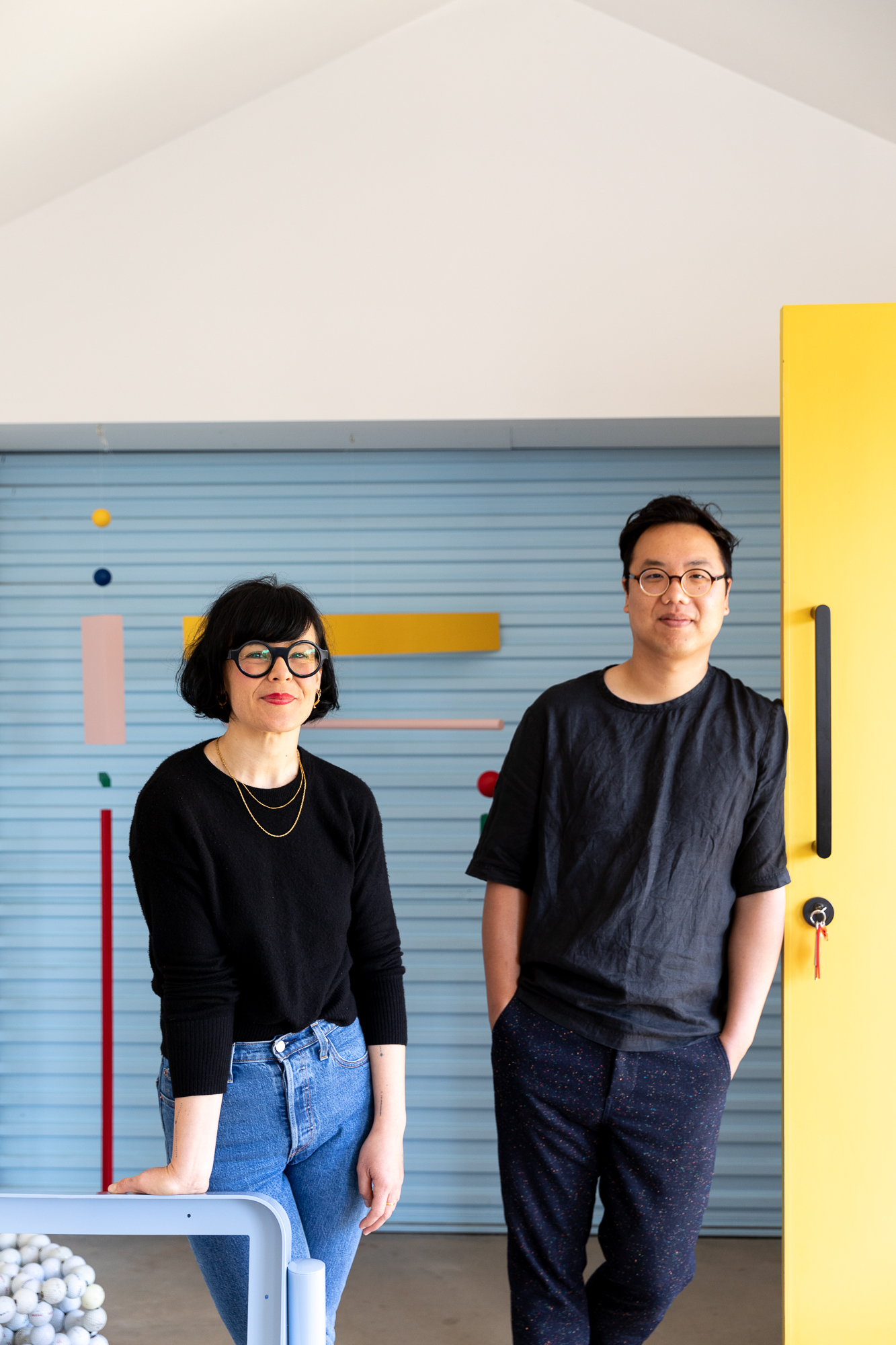
Splitting time between Adelaide’s west end and western suburbs, JamFactory creative directors Daniel To and Emma Aiston are bringing the spirit of their award-winning design practice to this Adelaide institution.
If you’ve ever visited the Morphett Street studio spaces that make up the JamFactory, you probably left with a sense of what an anomaly the 46-year-old not-for-profit is among Australian arts organisations.
Inside, a staircase connects levels of corridors where, behind every door, artists and craftsmen of all backgrounds – potters and metal workers, glass blowers and jewellery makers, apprentices and masters – not only survive but thrive.
“It’s an incredibly special place. Sometimes, I think we might take it for granted,” says Emma Aiston, who in March was appointed joint creative director of the JamFactory alongside partner and collaborator Daniel To.
“We have people come through from interstate and they can’t believe that a place like this exists.”
The pair, who divide their week between the JamFactory and the backyard studio in Rosewater where they run their own successful design practice, Daniel Emma, were previously creative directors of product and retail since 2008. This recent appointment is the result of a broader restructuring of the Jam Factory’s senior creative team which is intended to have the effect of facilitating greater osmosis between the different studios.
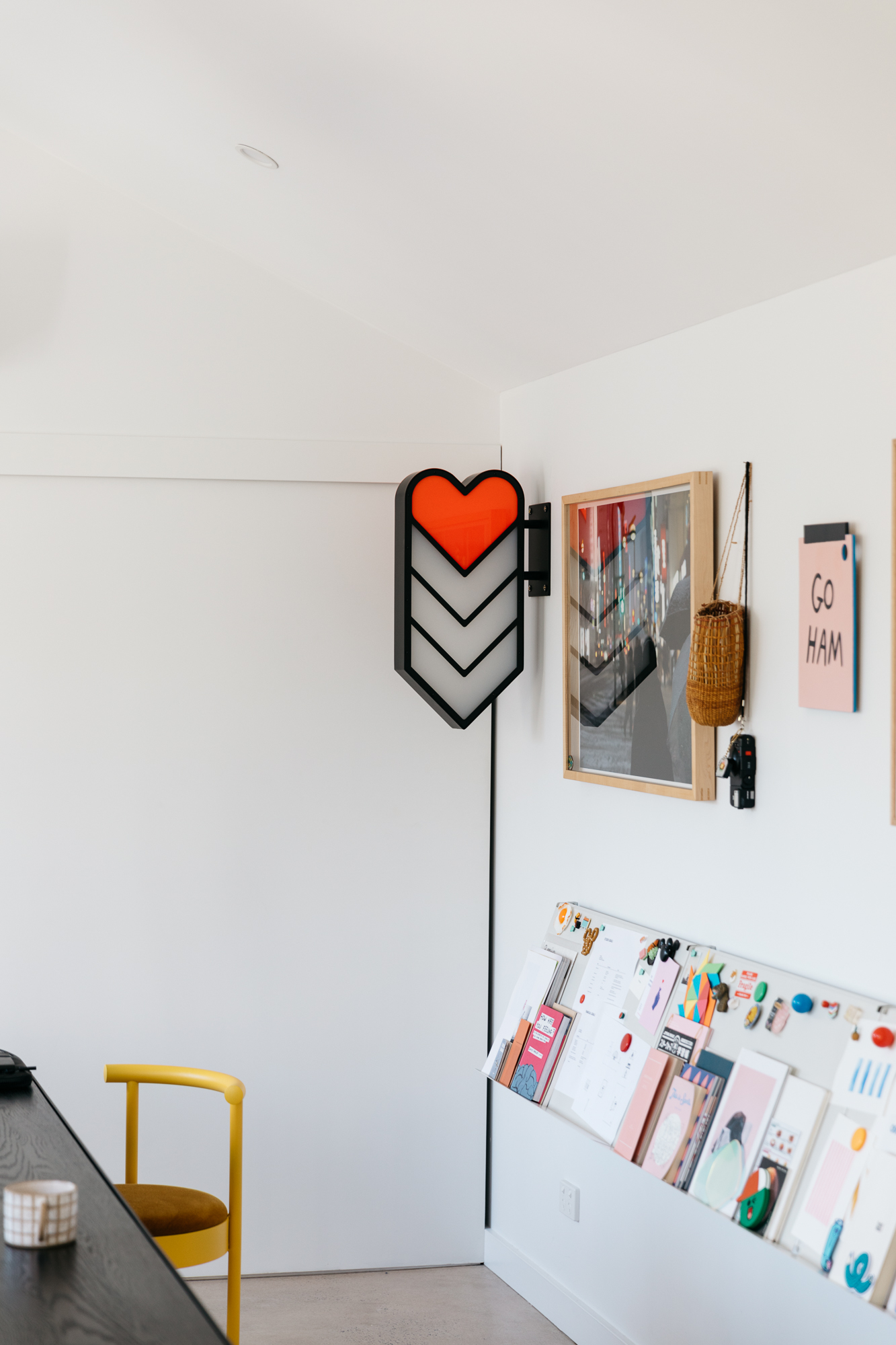
“Before, each of the heads of the studios had the title of creative director, and there wasn’t really a specific role tasked with connecting four different disciplines together in a cohesive way,” says To.
“This is a more streamlined way of working. The heads of the studios still manage the day to day running of things, but we’re thinking about ourselves as a single business.”
Daniel Emma has received international attention for its diverse and ever-evolving range of objects, making the pair obvious co-pilots to carry the Jam Factory forward. Along with a clear design sensibility, they have a natural gift for creating things that people want to have in their homes. A chair they designed for a window display with mass-fashion retailer COS once proved so alluring to people wandering by storefronts, they ended up producing and selling hundreds more.
Although on a smaller scale, their business also runs on the same ideas the Jam Factory was founded upon; the success of Daniel Emma lies in the couple’s ability to work as a collective, to recognise that the sum of their two parts is greater than the individuals.
All couples develop a personal shorthand. To and Aiston seem to communicate through a shared visual language that has grown and deepened over the course of the 16 years since they met as students of industrial design at the University of South Australia. After graduating, they moved to London where they worked in various design studios before returning to Adelaide to launch Daniel Emma in 2008.
“We had tried to work together before, but ego seemed to get in the way and it didn’t work out well,” To says.
“In London, I worked in a studio run by an American couple and it helped me understand how two people in a relationship might work together in a healthy way.”
“We have to agree on ideas, and when we can’t, well, we’ve both learned to let things go. It’s all about approaching it as a collaboration of equals.”
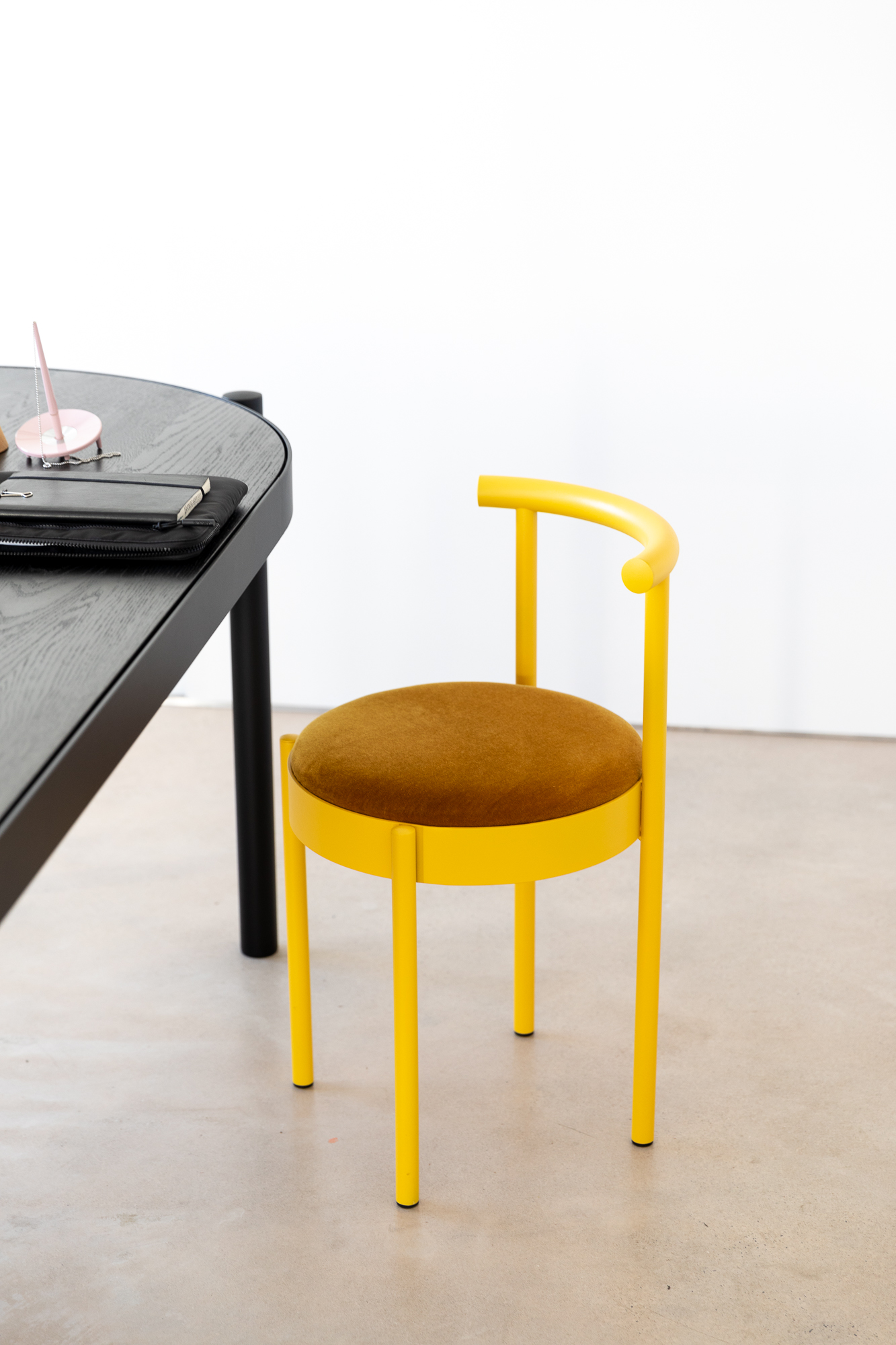
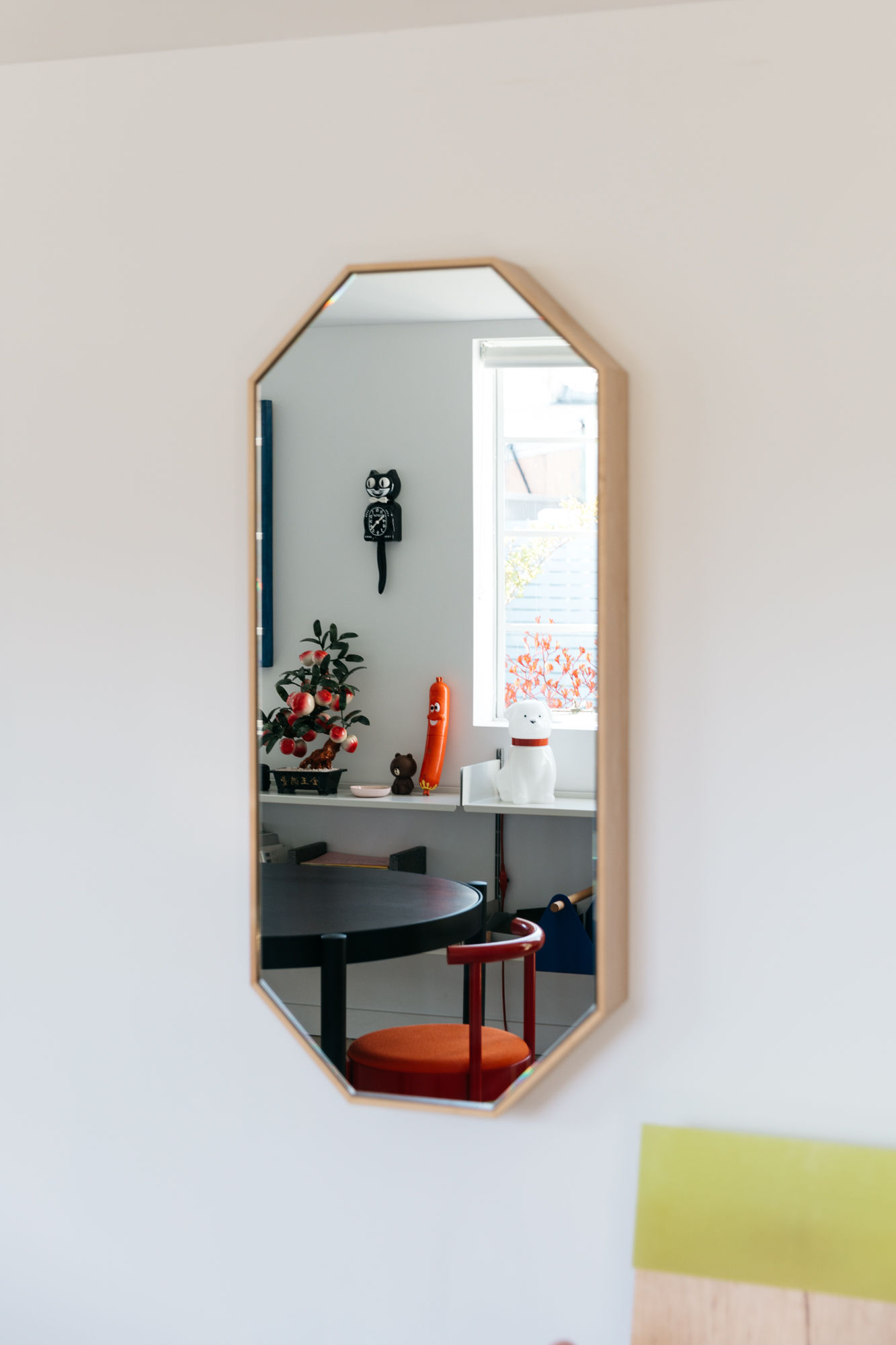
In the studio’s early days, Daniel Emma made the sorts of small objects that live on shelves and office desks but as their reputation grew, so too did the things they made. Soon they were creating light fixtures with gleaming iridescent bulbs and furniture that borrowed from a palette of nostalgic tones. They caught the attention of brands in Australia and internationally such as cosmetic company Guerlain and design houses Hay and Thorsten Van Elten.
In 2013, having already exhibited in Paris, London, Berlin, New York and Tokyo, a Melbourne show playfully titled, BIG! marked their first exhibition on their home turf. In a more recent commission for the City of Adelaide, they designed a series of AEDs (automated external defibrillators) lightboxes that were installed on public lamp posts throughout Adelaide and North Adelaide, in which a cartoonish heart shape rises triumphantly from the geometry of three incomplete triangles.
Throughout their success, they have carried the same unwavering and distinct style. Clean simple lines are interrupted by bursts of vibrant colour in objects that are both restrained and boisterous, speak both quietly and loudly, depending on who you are and how you see it.
“We’re not trying to inject any kind of political or social statement in what we design,” Aiston says. “We are just making things we like, and hopefully other people like them too.”
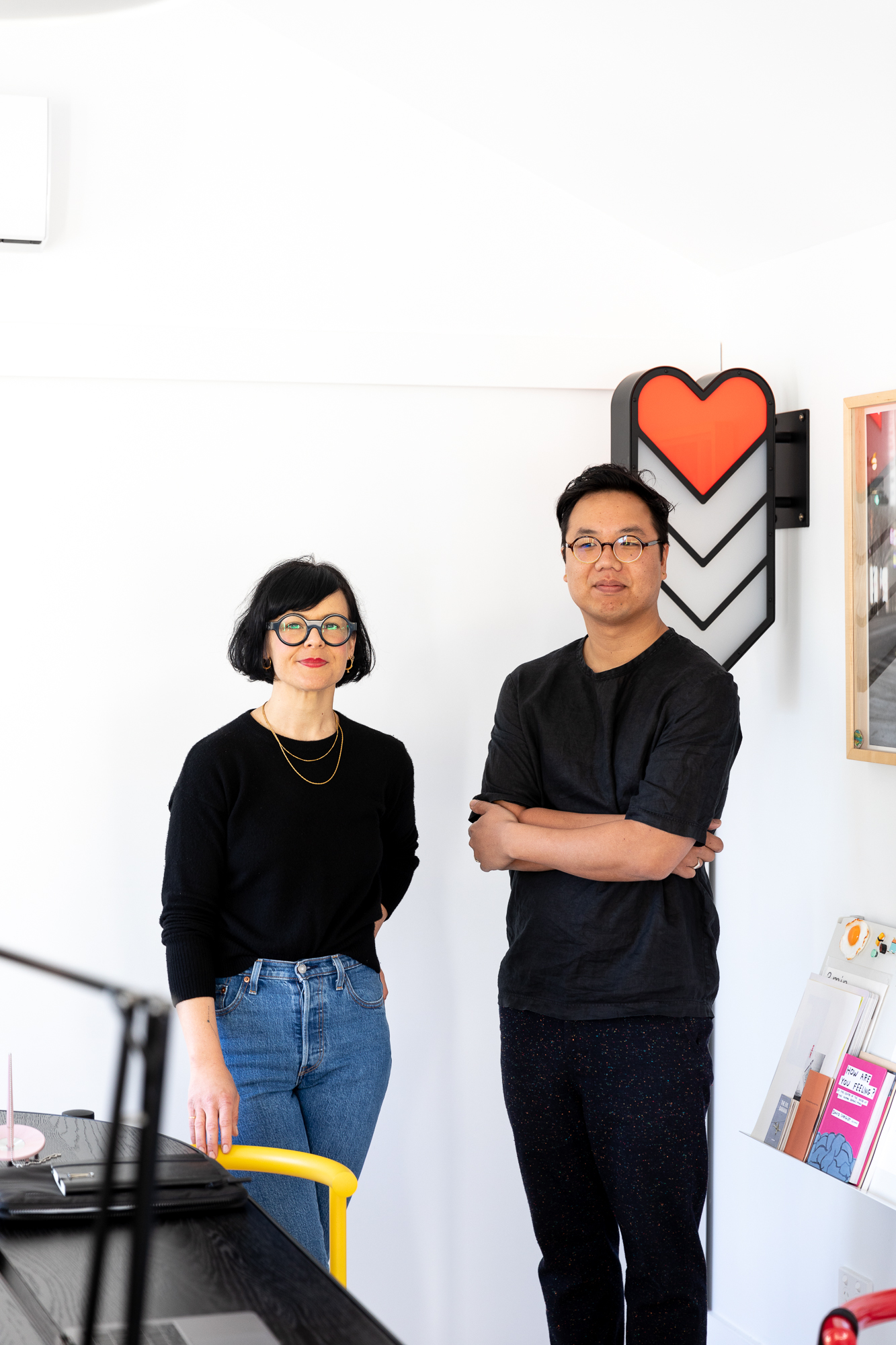
As the JamFactory’s creative directors at large, they are in the process of developing its second furniture collection (they launched the first during their time leading product and retail) and working on a project for next year’s Adelaide Biennial that is yet to be announced.
“Our role at the Jam is an extension of our practice in many ways, but not an extension of our aesthetic,” she says.
“It’s about giving others a platform and the opportunity to produce the work that they want to make. It’s about nurturing this very important ecosystem of creative people that is unique to Adelaide.”
jamfactory.com.au
daniel-emma.com